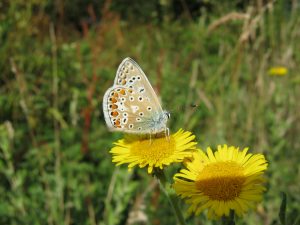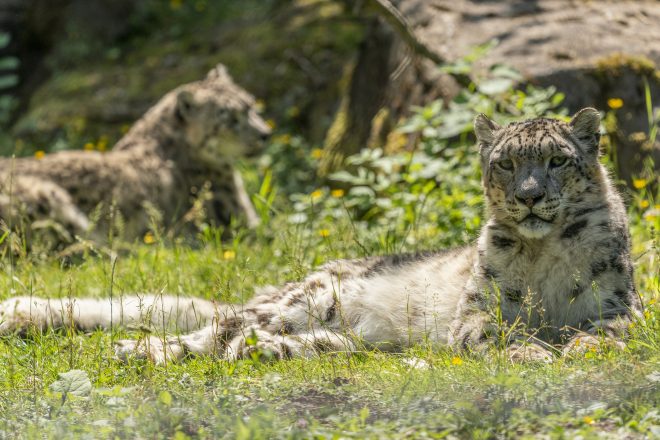Opinion piece: Let’s all work together to reconnect nature
October 10, 2022
Dr Martin Wilkie, Conservation Biologist at Marwell Wildlife, writes about how we can help to build ecological resilience.
 Nature is incredibly adaptable and has amazing capacity to bounce back and respond to change, especially from human disturbance. In the conservation sector this is called ‘ecological resilience’. It is a concept we can all think about and build into wild spaces of our own, to some degree.
Nature is incredibly adaptable and has amazing capacity to bounce back and respond to change, especially from human disturbance. In the conservation sector this is called ‘ecological resilience’. It is a concept we can all think about and build into wild spaces of our own, to some degree.
Building resilience across wild spaces can be achieved by even the smallest of natural areas. This is because it’s not just about a single contribution to natural recovery, it’s about collective areas and the network of ecological connections that can re-establish within and between them.
However big or small, allowing an area to recover for nature can be hugely beneficial for local wildlife and potentially more widely too. This could look like any number of things, such as relaxing pruning or mowing regimes for a season, thinking about wildlife corridors using hedges or bushes, creating wild spaces in out of the way areas (for example, unused parts of your garden) or even installing wildflower mats on a shed or garage roof to act as ecological steppingstones. The key is variability!
Adding a wide variety of different vegetation structures or a combination of ground and vegetation cover, which support varied native species or communities, is critical. The variability allows a mosaic of different habitats to recover, attracting a whole host of diverse flora and fauna. It also supports ecological relationships like pollination, disease regulation and predation. These relationships are strengthened by the connections and linkages with other nearby areas. The closer a cluster of wild spaces are, and the more of them, the less resistance there is for wildlife to move around and the higher the capacity for expansion. Imagine an electrical circuit board with lots of multiple connections – just gradually growing and becoming a lot messier!
For conservation managers, our work centres around accelerating the recovery of nature. We do our best to divert and minimise the impacts of human activities, but we can also help speed up the recovery process; allowing nature to take the lead. For instance, the projects we oversee at Marwell Wildlife help restore natural processes by managing invasive species in open grasslands, supporting native tree regeneration in ancient woodlands and creating new areas on heathlands for the seed bank to recolonise
The protected areas we manage are all connected, sometimes closely, sometimes not, but allowing ease of movement throughout the landscape is important. This is key for ecological resilience and will ensure adaptability and ability to resist or bounce back.
We can all do the same in our own small areas: those pocket-sized corners of connectivity for wildlife. They all make a difference and help build a stronger network for nature and people. How will you help to reconnect nature?
Newsletter competition – October 2022
We’ve teamed up with Marwell Zoo to offer a free family ticket pass.
All new newsletter subscribers throughout the month of October 2022 will be added to the prize draw. To subscribe click here
Those who are already subscribed to the newsletter can email “ReNature” to newsletter@southdowns.gov.uk
The deadline will be midnight on 31 October. See terms and conditions here.

